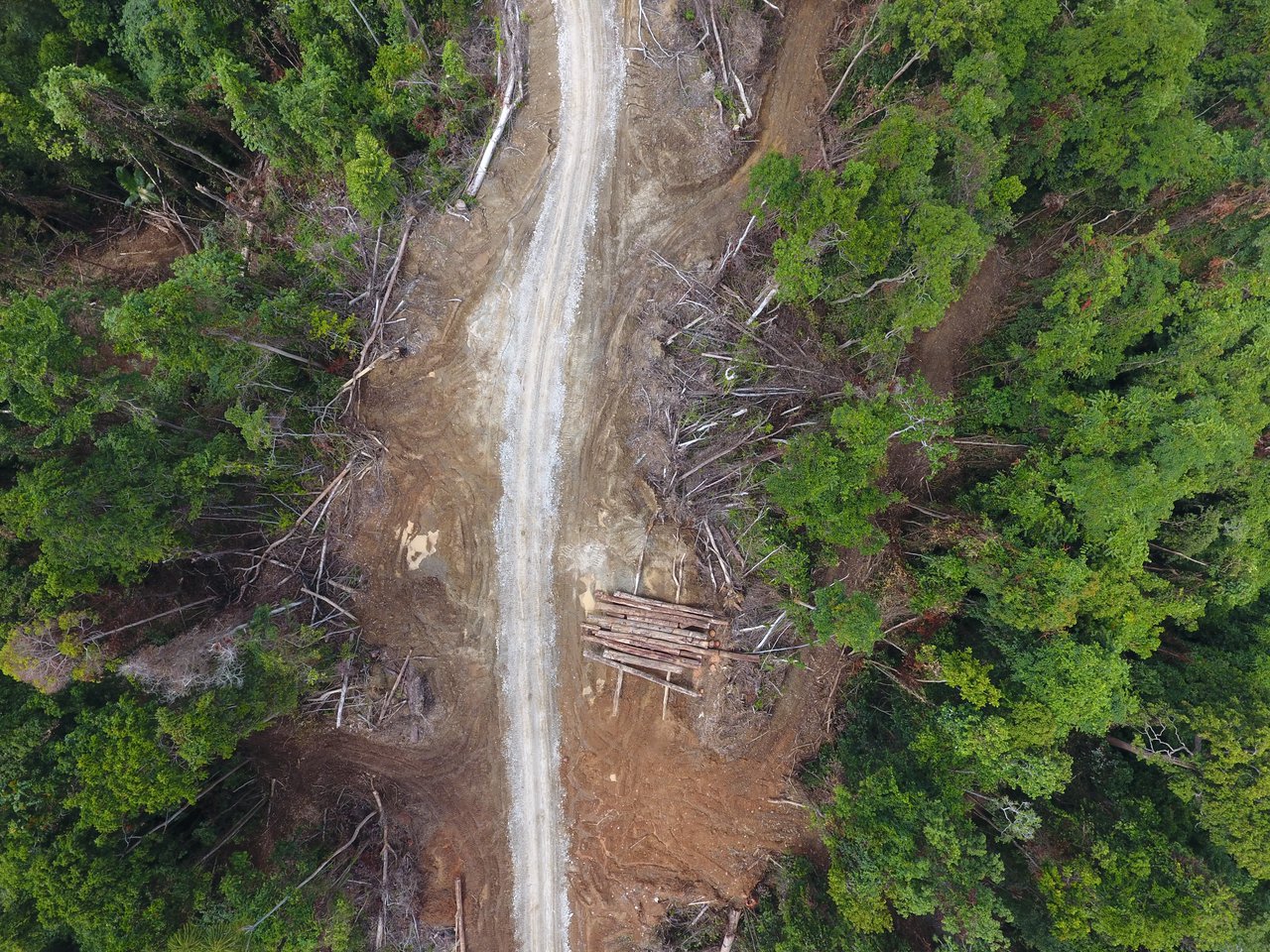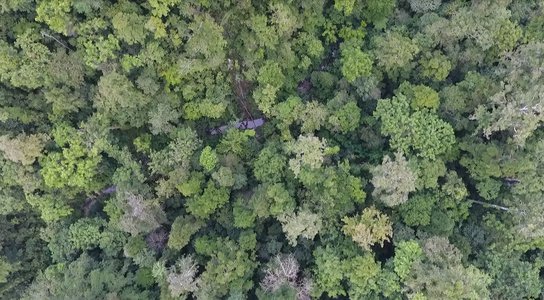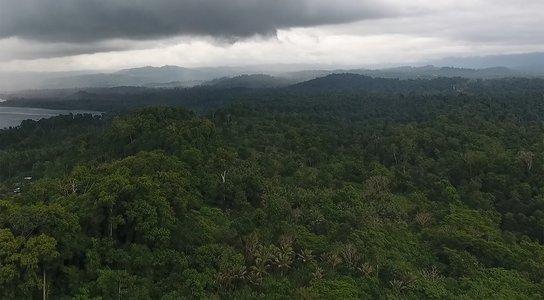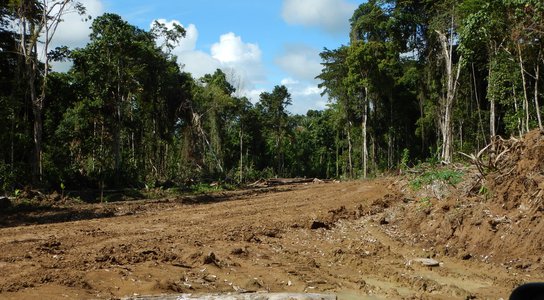Our new report ‘A Major Liability’ reveals that many logging operations in Papua New Guinea appear to be breaking the law – but continue to sell off timber from these climate-critical rainforests overseas.
In 2016, PNG provided 29% of China’s tropical log imports, making it the country’s single largest supplier. But our investigation reveals how a large number of logging operations in Papua New Guinea (PNG) violate the law despite holding government-issued permits.
China is the world’s largest consumer and manufacturer of wood and wood products. Yet it has no regulation to keep illegal timber from entering its borders.
The risk of illegal timber from countries like PNG flooding China’s markets has the potential to damage its reputation and major trade relationships as buyers in the U.S. and EU, which ban illegal timber imports, take action to protect themselves.
This trade has profound implications for PNG as well. 70% of the country is covered by forest ecosystems that are home to some of the world’s rarest plants and animals. The forest is also central to the cultural traditions and livelihoods of PNG’s eight million people. By continuing to import tropical timber from PNG on such a scale, China is driving the destruction of a vulnerable and ancient forest.
In A Major Liability, we draw on satellite imagery to show hundreds of apparent violations of the country’s Forestry Act in major logging operations – all of which hold government permits and all of which continue to export timber.

Logging road in East New Britain Province, Papua New Guinea.
On paper, the legal system in PNG guarantees that indigenous Papua New Guineans have control over their forests. In reality, however, the government is responsible for a catastrophic failure to uphold these laws, and the forest sector has been plagued for decades by allegations of corruption and lawbreaking.
Our normal way of life in using natural resources cautiously and sustainably has gone. Our customary and ownership rights are disrespected and our traditional way of life is being completely damaged - Augustine Mondu, Chairman, Turubu Ecoforestry Forum
This forest and the lives it supports are under threat, with deforestation rate in PNG unusually high in recent years – in the past 5 years alone, 640,000 hectares of forest were lost. And as the largest importer of timber from PNG, China’s failure to introduce regulations to screen timber entering the country raises concerns that it is fuelling illegality in PNG’s forestry sector and facilitating the entrance of illegal wood into its market.
Recommendations
China- The Chinese government should put in place
mandatory measures requiring all timber importers to carry out due diligence to
ensure they do not import timber produced in violation of source country laws.
The measures should require importers to go beyond official documents as proof
of legality and require importers to investigate and verify the conditions
under which the timber was produced. At present, such due diligence would mean
not buying timber from any of the operations named in this report. The measures
should also require companies to publish their due diligence policy and
procedures.
- The Chinese government should expand its
national Green Supply Chain policies to include requirement on the sourcing of
timber and other raw materials abroad, by establishing mandatory requirement
for these materials to be sourced legally.
The PNG government should immediately place a moratorium on issuing all new logging and forest clearance permits.
- The PNG government should place a moratorium on
all existing logging operations and review the issuance of their permits and
the operations themselves for legal violations. Permits found to have been
issued illegally should be cancelled.
- The PNG Forest Authority should thoroughly and
regularly oversee the operations of all logging and clearance operations and
ensure that companies operate according to the law.
- In conjunction with the PNG Forest Authority,
the PNG judiciary should hold those responsible for breaking the law to
account, by investigating, prosecuting, and fining companies, and/or fining or
jailing company directors, officers, and government officials involved.
- The PNG government should also attempt to
reclaim the proceeds of any timber deemed to have been cut illegally and
establish a mechanism to return these funds to affected landowners.
- The PNG Forest Authority should create a
publicly accessible electronic system of documents related to the issuance and
oversight of logging and clearance permits and operations, including
verification of landowner consent and findings from the agency’s checks on
operations. This will allow landowners to monitor how their own land is being
used and challenge any unauthorized uses, and also facilitate thorough due
diligence by timber buyers.
- PNG’s new Timber Legality Standard should
include clear verifiers for the free, prior, and informed consent of landowners
for any logging or forest conversion projects taking place on their land.


